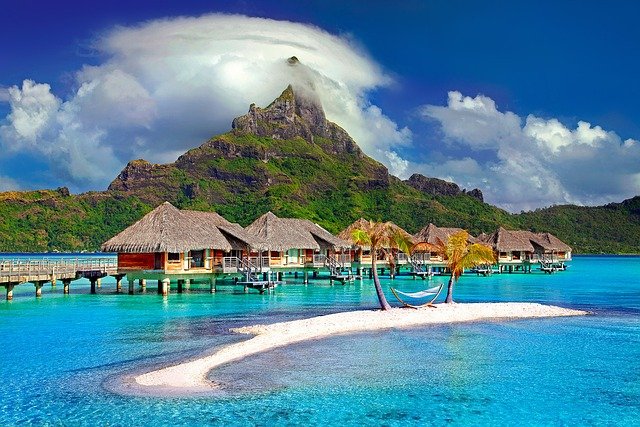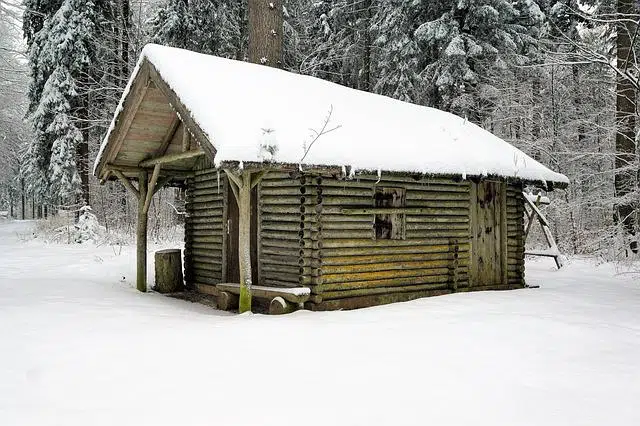
A bungalow is a rustic home that is used for tourist purposes.
Determining the etymological origin of the term bungalow leads us to make it clear that it is an Anglo-Hindu word. And it is the result of "bangala", a word from the Hindi language that means "Bengal-style house", which was used by the English, adapting it, until it gave shape to the word that concerns us now.
Bengal, it must be said, is an Indian city that has the particularity that its homes are built using only wood.
Regarding its pronunciation, in English-speaking countries they tend to accentuate it on the first syllable, turning the "u" into one of the sounds similar to our "a" and the "w" into a "u" (since in English This letter is not called "double v", but "double u"). In the rest of the world there are various versions, which generally vary by the accentuation (they make the term acute), by the pronunciation of the "u" as we would do in Spanish, by the omission of the "w" or by pronounce it like a "v."
What is a bungalow
A bungalow is a type of small cabin or house that is generally oriented toward tourism . It is a simple construction, with a single floor or floor, which has basic amenities.
For example: “I already booked a bungalow facing the sea to spend the summer holidays” , “My grandfather lives in the mountains and has a bungalow complex” , “I think it will be cheaper if we rent a bungalow and not go to a hotel" .

In some cases, the bungalow is a permanent residence.
Characteristics of these homes
It can be said that a bungalow is a somewhat rustic home . It is often built in natural tourist areas, such as a beach , a mountain range or a forest . Due to its design, the bungalow seeks practicality, lacking superfluous spaces. A tourist bungalow, beyond the number of beds it has, usually has a kitchen/dining room and a bathroom, as well as furniture, television and other devices or appliances.
In a broader sense, a bungalow can be any home with the aforementioned characteristics, even if it is for permanent use (that is, a fixed residence). Bungalows are common on the outskirts of certain cities in the United States , being chosen by elderly people for their retirement (especially because, since they have all the facilities on the ground floor, they are comfortable constructions for those who have mobility problems).
On the other hand, in some regions, a house that has two floors or floors is also known as a bungalow. Defining precisely what a bungalow is, therefore, requires us to pay attention to context .
Bungalows and tourism
Despite the simplicity that the bungalow represents in its original form, today it can be a home that perfectly adjusts to all the needs of its users, especially when rented to tourists in beach areas, since in these cases An experience of absolute comfort is sought.
Taking into account the significant boom that the bungalow has experienced in tourism, it is common for many people to come across accommodations like it and not know how to identify them compared to other types. Thus, for example, the main difference that exists between a wooden cabin and a bungalow is that the former has a completely open interior, it does not have layouts of any kind. However, in the other construction there are separate rooms.
Regarding its use as a home during the holiday season, the bungalow is usually found in areas surrounded by nature, although well connected to urban centers and close to all basic services, such as supermarkets and restaurants. When its green surroundings are combined with its rustic appearance, an aspect is generated that encourages rest, disconnection from obligations and the rhythm of the city.
The price and other advantages
Although the bungalow is a very simple type of house, this does not mean that it cannot be spacious; In fact, it is designed to accommodate a minimum of two people and is usually chosen by families with children and groups of friends. Regarding prices, it is necessary to highlight that in most cases it is considerably cheaper than a hotel , although it all depends on the needs of each person; In a bungalow, for example, users are expected to cook and carry out cleaning tasks, something that does not tempt those seeking absolute peace.
Precisely the price is the main reason why many people, when traveling and enjoying a vacation, choose to stay in a bungalow. However, they also do it for these other reasons:
• It gives them greater independence, freedom and less control than in a hotel.
• They do not have to be subject to the breakfast, lunch or dinner schedules of hotel establishments.
• They may feel more like they are at home.
• It does not require you to have to “put up with” other annoying guests or the noise generated in a hotel due to cleaning, for example.
